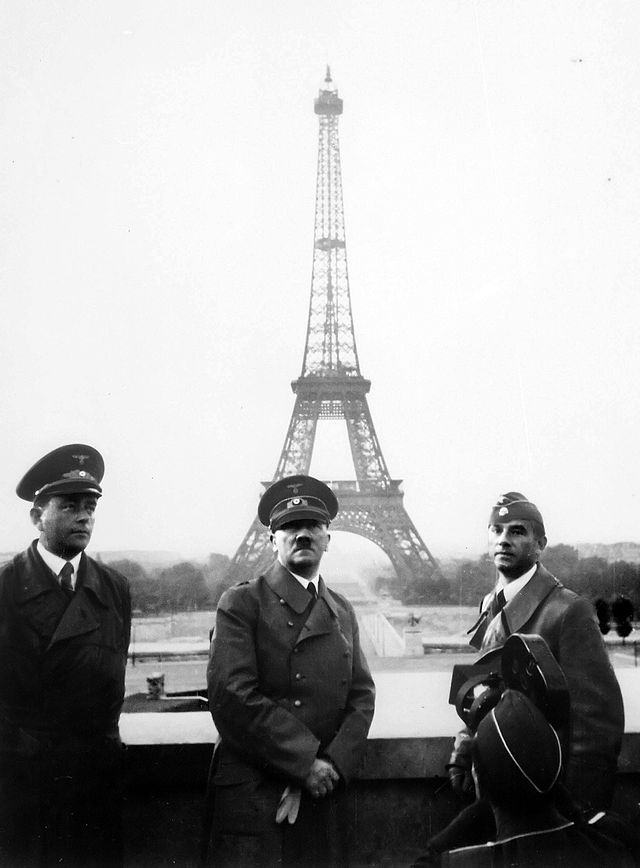In a new Afterword (published at the Los Angeles Review of Books) to the updated version of 1998’s Explaining Hitler, Ron Rosenbaum looks at the architect of Nazism in light of 9/11, arguing that Hitler was not a failed dictator but a successful terrorist. An excerpt:
“For Hitler, it was not a matter of making the trains run on time so much as making the trains never stop running to Auschwitz and Treblinka. One relatively new aspect of Holocaust study is a focus on what happened when the trains finally did stop running, because the Russians were about to overrun the mainly Polish-based camps. The full story, much of which was new to me, can be found in Daniel Blatman’s 2011 work, The Death Marches: The Final Phase of Nazi Genocide.
When the camps were disbanded, the large SS and native Polish and Ukrainian guard troops feeding the gas chambers were not redeployed to stave off the Russians. Instead they were ordered to take all the living and half-dead captives on the road in what became the final phase of the Final Solution: the Death Marches. Hundreds of thousands of closely-guarded prisoners were mercilessly beaten or shot when they couldn’t keep up, starved to death while being harried along icy roads to . . . where? There was no sanctuary left safe for killing, but the killing had to continue at all costs, a horror at least as unfathomable as the camps themselves. The Death March commanders didn’t have to ‘follow orders.’ They had incorporated Hitlerism so deeply, they wanted to follow orders. As Evans argues, killing Jews was more important than military objectives. These commanders risked their own lives to continue the murder.
What’s worse, Blatman reports, is that it was not just military men but civilians along the way who gleefully took part in murdering the half-dead Jews. For those, like me, who thought it impossible to be further shocked by Hitler’s willing accomplices, reading about the Death Marches introduced a new level of horror.
It is a testament to how deeply dyed the souls of the killers were. Hitler was possessed, some might say, but he was also the cause of possession in others. …
Hitler didn’t lose the war. Not the war Evans argues was most important to him: the racial war. Hitler won that war. Six million to one. Yes, he committed suicide at the end. (And yes, 50 million others lost their lives so he could win the part of the war he cared about most. Collateral damage.)
Thinking about that suicide now, in the light of 9/11 and the subsequent exaltations of suicide bombing on messianic, theological grounds, does in fact offer a radical new way of characterizing Hitler. In retrospect at least, it’s tempting to argue that Hitler was, if not the first, then by far history’s greatest single suicide bomber. He blew up Europe to kill the Jews in it, even if it meant killing himself and tens of millions of others in the end.”
Tags: Adolf Hitler, Daniel Blatman, Ron Rosenbaum

